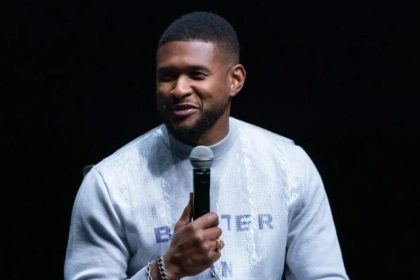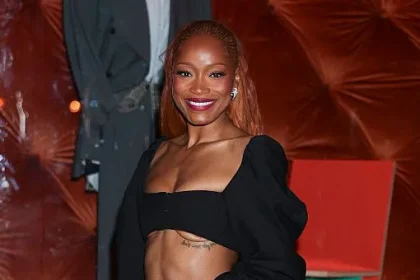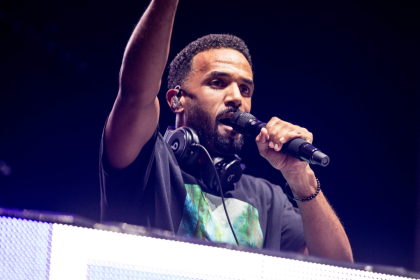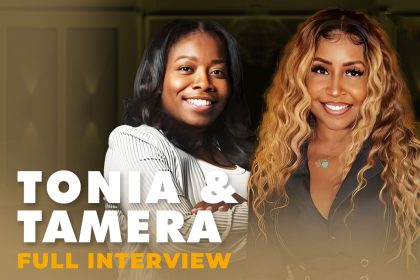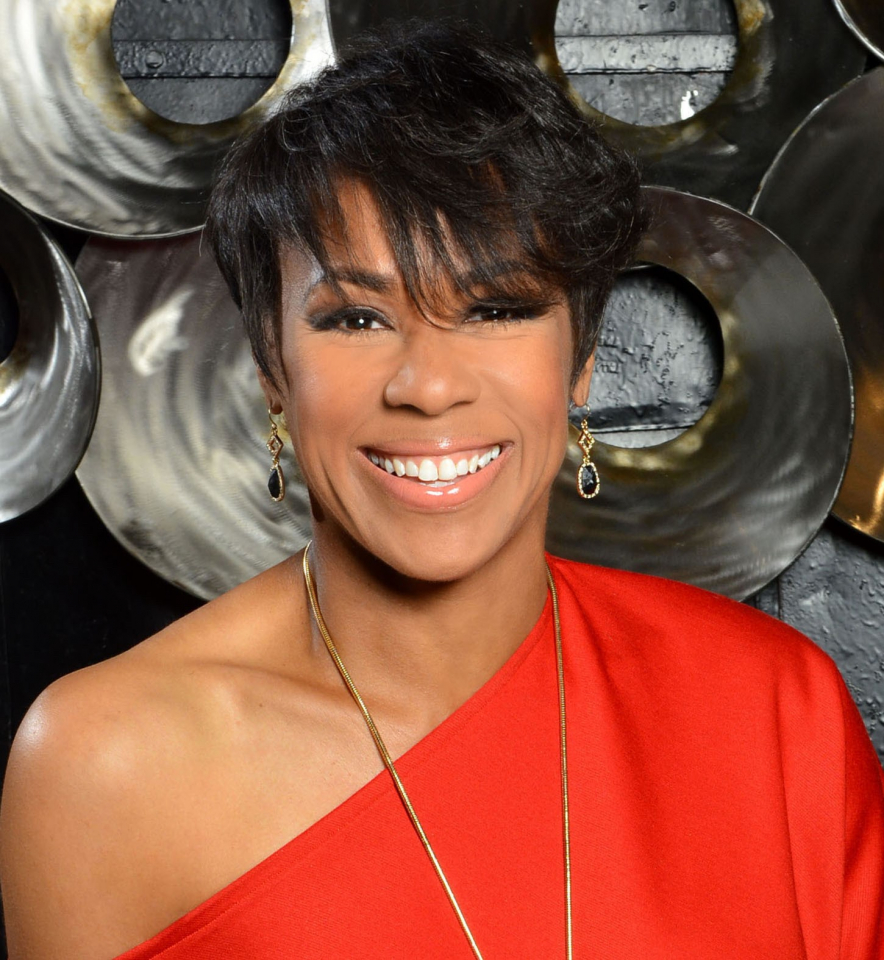
When Sheri Riley was a young girl in Kentucky, she told everyone that when she grew up she would work at a record label and live in Atlanta. No one believed her, but through hard work, persistence, and prayer, Riley became the senior director of marketing at LaFace Records in Atlanta. While she was there, she introduced the world to some of the most influential multiplatinum artists of the nineties, including TLC, Toni Braxton and Usher. Sheri was successfully living out the dream she expressed so many years ago — and then she gave it all up.
Exponential Living helps busy, goal-oriented people to integrate their personal desires into their life without detriment to their professional achievement. It provides the answers we need to make choices that lead to less stress, better clarity, and a more fulfilling life. And empowers us to live in our true power, which is peace.
The foreword is written by Usher and features interviews with actor-rapper Chris “Ludacris” Bridges, TV and film producer Will Packer, syndicated radio personality Bert Weiss, actors Boris Kodjoe and Nicole Ari Parker, Atlanta City Council President Ceasar Mitchell, retired NFL player Peerless Price, and retired NBA player and philanthropist Darrell Griffith, to name a few.
Why did you write this book?
When I resigned from LaFace Records and started my journey of Exponential Living, I thought I was an anomaly. And honestly, my family and friends thought I was crazy for leaving such a high profile job. My Dad truly believed I had a nervous breakdown. And then, many of my friends and business colleagues who had $300,000+ a year salaries, celebrities who had fame and access, and others began calling me and talking with me about how empty their lives were. And I began to realize that this wasn’t just my issue but many people shared this challenge. And I shared with them the things that I was doing that were helping me. And those things began helping them as well. After the first time, I said, “stop spending 100 percent of your time on 10 percent of who you are,” I wanted to discover the “how” to do this. I didn’t want to write a book that talked about the challenges. I am truly committed to the “how.” How do you stop spending 100 percent of your time on 10 percent of who you are? And that’s what my book delivers. The “how.”
What’s the story behind the title?
Exponential Living is when our lives are filled with an unshakable peace, clarity, and courage that create a deep-rooted joy. This empowers us to achieve personal and professional success. It allows us to not just achieve external success but enjoy who we are when we reach our goals.
For “stop spending 100 percent of our time on 10 percent of who we are,” around 2001 I was meeting with one of my mentees, Kiera Lytle. She was frustrated and confused. She had her dream job as a marketing director for Aquemini Records, the record label owned by OutKast. She was making very good money, had access and was considered a key influencer in Atlanta and in the entertainment industry. So, she didn’t understand why she wasn’t happy. I asked her several questions about things I knew she loved to do that she was no longer engaged in. And then I asked her why was she spending 100 percent of her time on 10 percent of who she was and expecting 100 percent of her fulfillment. That question hit both of us like a ton of bricks as it came out of my mouth. And the impact that statement had in that moment is the same impact it has over 15 years later.
What do you hope readers will glean from reading your book?
I never wanted just a transaction, where people bought my book, read it, and then put it on the shelf. I want my book to ignite and facilitate transformation. My heart’s desire is that Exponential Living is a guide and a manual for people. I want my readers to write in the margins, rabbit ear the corners of the pages, underline sentences, and refer to my book for the rest of their lives.
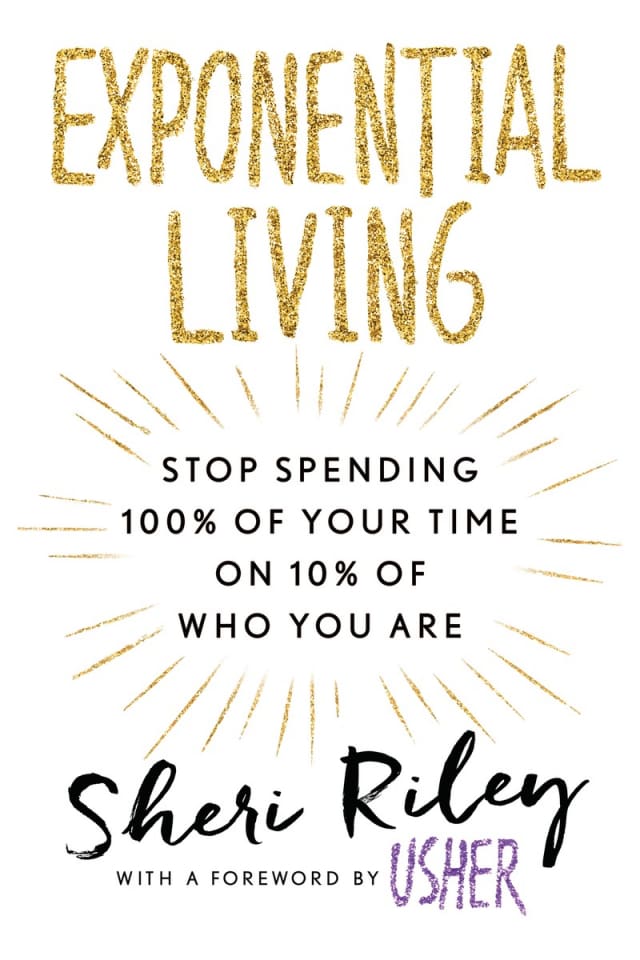
How long did it take you to write this book?
I began the process about twelve years ago. It took me three years to secure my agents, four years to get my publishing deal and one year to write the book.
What was your regimen to complete this book?
I’ve been developing the content for Exponential Living for almost 15 years. So after I secured my publishing deal with Penguin Random House, the first step for me was organizing all of my content. Then, I began writing. For around seven months, I wrote three to five days a week, two to five hours a day, starting at 4 a.m.
How did you arrive at this career choice? Was it a deliberate decision or a gradual and natural evolution?
My career choice today has been a gradual and natural evolution. I thought I was going to be the manager of some of the biggest artists in the world.
What separates you from others in your field? What is unique to the experience that you create?
What makes me unique is me, my story, my journey, and the message I bring to the world. As Les Brown says, we all have a unique energy signature that resonates with the people that need our message. Shonda Rhimes says, “You are not alone. Your tribe of people is out there in the world waiting for you.” I am my first and most important client. I am honestly just sharing the truths that continue to help me grow. For over ten years, I’ve shared my Principles of Exponential Living with my friends and family, and later with my clients. All that to say, I didn’t get into the self-help profession to elevate myself. I am truly committed to helping people get out of the deep holes that I too have been in. I am truly committed to helping people discover the power of pursuing peace, choosing clarity, and living courageously. I am committed to helping people broaden their definition of success so they can fully enjoy the life they are living. And lastly, I want to help people live in the power of peace.
For those considering entering this arena, what skill sets do you recommend mastering?
You must have a love for people and their growth and development. But more importantly, you must be committed to your own growth and development. What traits are most conducive to success? I have met many different people from around the world that work in the arena of speaking, coaching, and personal/professional development. And I’ve come across many different personalities, backgrounds, and realities. And that is the power of my industry. These people have an impact [on] the individuals that resonate with their message, personality and dominate traits. The beauty of serving people in this field is the diversity, global reach and connections you can form with your message and platform.
How do you stay at the leading edge of your craft?
I am constantly studying my craft. I am consistently attending trainings, workshops [and] seminars. I am an avid reader and I put a lot of time into my preparation. I am constantly challenging myself to get and be better. And I am always raising my own bar of excellence. Also, I am honest and considerate of others.
Do you think that there are any widely held misconceptions about what you do? If so, what are they and how do you work to dispel them?
I don’t think there are any misconceptions. I am pretty much an open book.
How do you map out your goals? How do you measure your success?
I set one to two extremely challenging goals and then focus on accomplishing one to two steps to move me forward in reaching those goals. I measure success by two things — reaching my goals and the person I am on the journey.
Who do you consider to be your peers in your field? Who do you see/use as examples for you to emulate?
I admire the body of work of John Maxwell. I love and appreciate the person I’ve gotten to know.
Name two of your top role models: one from your industry and one from outside of it.
John Maxwell and Oprah Winfrey
Name three books, works, performances or exhibits that changed how you view life and/or yourself.
Essentialism (Greg McKeown), The John Maxwell Team, The Bible.
Why do you consider continued learning important?
Learning is the fuel that keeps us growing. Learning should keep us humble there’s always more to learn.
What affirmations do you repeat to yourself that contribute to your success?
Most of my affirmations are bible verses. The one I am meditating on the most right now is “Don’t be Afraid. Stand still and see the salvation of the Lord, which He will accomplish for you today…. The Lord will fight for you and you shall hold your peace.” (Exodus 14:13-14)
What role does technology play in your day-to-day life?
How do you utilize it? Technology is so integrated into my life that it’s like my sixth finger, third eye, third ear, third hand … you get the point. It’s everything, at all times, in every area.
What software, app or other technological innovation has made the biggest difference in your life or career?
The most important technological innovation in my life is Apple’s iCloud. Having everything on my phone, iPad, and computer sync in real time makes my life so much easier and has exponentially increased my productivity.
Please define your personal brand.
My personal brand is peace, integrity, and excellence.
What is your favorite vacation destination and why?
My favorite right now is Aruba. I love that island for reasons I can’t explain. As soon as I land and walk through the airport, I instantly feel a joy, peace and calm. I love to travel so I am always looking for a new favorite place.
If you could change one thing about the world, what would it be?
I would change all of the talking and institute more listening. People are becoming rich and famous from talking and so now the focus is on saying whatever you need to say to “create your brand.” This may make for good TV but it’s not good for society, business, politics, academia and society, as a whole.
If you could change one thing about yourself, what would it be?
I am a very introspective person and I am always seeking how to improve myself. So, this answer is always evolving. For right now, I am focused on enjoying every moment of every day. And truly enjoying life.
What does it take to be iconic?
In your estimation, who has achieved that status? Modern-day icons — John Maxwell, Beyonce, Oprah Winfrey, Steve Jobs, LeBron James, Warren Buffett, President Barack Obama, first lady Michelle Obama, Serena Williams, and Melinda and Bill Gates, to name a few. The qualities that make these individuals and others iconic are their perseverance, focus, commitment, excellence, connection to others and the ability to rise above challenges and to do it with grace and dignity.


